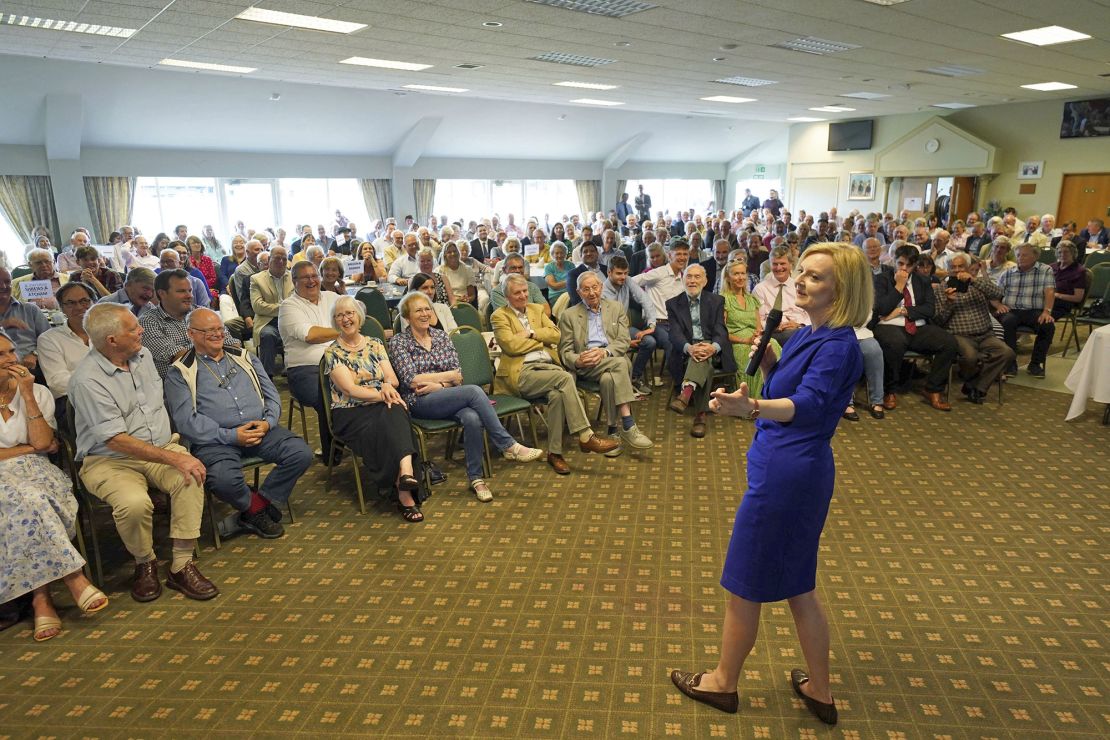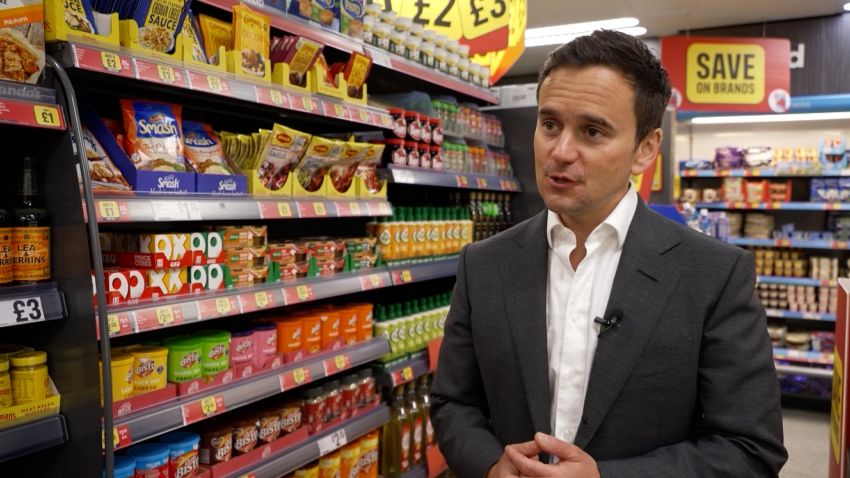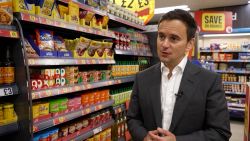The frontrunner to replace Boris Johnson as the United Kingdom’s next prime minister has a plan to rescue the country from recession — but many economists aren’t too happy about it.
Polls put Liz Truss, the UK’s foreign minister, well out in front of former finance minister Rishi Sunak in a contest that will be decided in early September by members of the Conservative Party.
If elected, Truss faces a daunting array of problems. Millions of Britons are struggling to make ends meet as inflation hits a four-decade high, driven by soaring household energy bills that are expected to top £300 ($365) a month in January.
On Thursday, the Bank of England raised interest rates by 50 basis points to 1.75% — the biggest increase in 27 years — and said it expected the UK economy to tip into a recession by the end of the year.
But Truss, in a debate that same day hosted by Sky News, struck an optimistic note, saying a recession was “not inevitable.”
“We can change the outcome, and we can make it more likely that the economy grows,” she said.
What’s her remedy? A set of personal income and business tax cuts amounting to more than £30 billion ($37 billion), according to estimates by the Institute of Fiscal Studies.
Tax cuts, Truss said, will help rein in runaway prices and boost growth — a claim that’s left many economists dumbfounded.
Inflation squeeze
Truss has promised to reverse an income tax hike introduced in April, and ditch a planned increase in taxes on businesses next year from 19% to 25% that was designed to help pay for the costs of pandemic relief.
She’s counting on these cuts to stimulate growth, encourage businesses to invest, and ultimately help bring down inflation — which the Bank of England expects to edge above 13% later this year.
But without a meaningful reduction in government spending — which Truss has not laid out in detail — “most of the economic theory we have built in the past 100 years would claim the opposite,” Grégory Claeys, senior fellow at Bruegel, a think tank, told CNN Business.
Truss has cited Patrick Minford, a pro-Brexit economist at Cardiff University whose research influenced Margaret Thatcher’s government in the 1980s, in backing her view.
And in a letter to The Telegraph last month, a group of economists praised her plans, arguing her tax cuts would “not be inflationary” and were necessary given the “unbearable strain” historically high taxes were having on UK households.
But John Van Reenen, a professor at the London School of Economics, among others, disagrees.
“[She’s] wrong. It won’t decrease inflation, it will increase inflation,” he told CNN Business.
Tax cuts put more money into people’s pockets, driving up demand for goods and services. In the context of an “extremely tight,” labor market, Van Reenen said, fueling more demand will worsen inflation.
A spokesperson for Liz Truss told CNN Business that the country’s tax burden would soon be the highest since the 1940s, which would stifle business, innovation and growth.
“Liz’s tax cuts are necessary, affordable and not inflationary. Cutting taxes, incentivizing business investment will boost productivity, create new jobs and ensure people can keep more of their hard earned cash,” the spokesperson said.
Any further rises in consumer prices could pile further pain on households and spur the Bank of England to hike interest rates again, hitting those without a fixed-rate mortgage particularly hard.
Already, UK shoppers have pared back spending on groceries and ditched streaming subscriptions as the cost of living has soared in recent months.
Eye-watering energy prices, exacerbated by Russia’s invasion of Ukraine, have driven consumer prices up 9.4% year-over-year.
But on Thursday, Truss reiterated her opposition to increasing a £5 billion ($6 billion) windfall tax on oil and gas companies’ bumper profits to fund more help for consumers, arguing that it would discourage investment in the United Kingdom.
“If we also have a reputation for levying a surprise tax on any industry that makes a profit, that is a big problem for our country,” she told Sky News.
Racking up debt
Economists point to other hurdles in Truss’ plans, which include a promise to increase military spending: rising government debt.
“The effect you would get on growth [from tax cuts] is nowhere near enough for them to pay for themselves,” Stuart Adam, a senior economist at the IFS, told CNN Business.
Truss formerly served as a high-ranking minister in the country’s Treasury department, a role that has responsibility for managing public spending.
Now, instead of big spending cuts, Truss has promised to find savings through slashing waste and inefficiency in the public sector, though some of her plans have already come unstuck.
Earlier this week, Truss retracted a proposal to tie the wages of government workers to local living costs, which she claimed would save £8.8 billion ($11 billion).

Critics argued the plans would result in an effective pay cut for millions of nurses and teachers.
Truss can little afford to anger public sector workers, thousands of whom have gone on strike this summer — or have threatened to — to demand wage increases.
In the long run, Adam said, the government would need to slash its spending or raise taxes again to pay for any tax cuts introduced by Truss.
“At some point that’s got to come home to roost,” he said.
Going for growth
Truss’ plans to grow the UK economy are ambitious, given the central bank’s own prediction that the economy will go into reverse in the fourth quarter, a situation that could last all of next year.
Van Reenen said the “temporary sugar rush” brought by tax cuts would do little to ward off an economic slowdown, which is being driven by supply shocks rather than a lack of demand.
“Just stimulating demand [through tax cuts] isn’t a great tool for getting out of [a recession],” Adam said.
Further interest rate hikes resulting from higher inflation would be likely to reduce demand anyway, he added.
For Van Reenen, the focus on tax cuts to boost growth is misplaced. Deeper problems in the economy, including more than a decade of stagnant productivity and real wage growth, should be the new prime minister’s priority.
“It’s a bit depressing the lack of significant engagement with serious issues,” he said, referring to both Truss and Sunak’s plans for the future.



















